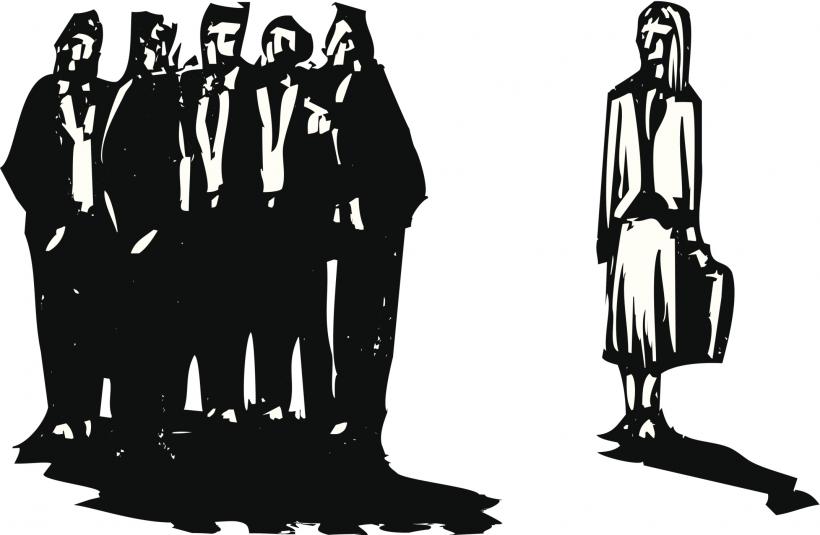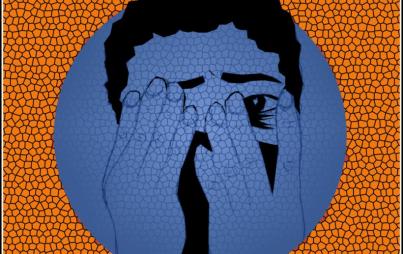
Yesterday marks the 42nd anniversary of the legendary Title IX act, intended to level the playing field between men and women in education . . . and boy do we still need it. The landmark legislation—passed back in 1972—holds that:
“No person in the United States shall, on the basis of sex, be excluded from participation in, be denied the benefits of, or be subjected to discrimination under any education program or activity receiving Federal financial assistance.”
Such legislation would hopefully seem like a no-brainer these days, but sadly, Title IX is more important than ever.
Long-known for its providing funding for women’s athletics, the act has since evolved to take on a much darker importance. A look to graduation ceremonies at schools like Stanford, Brown, and Harvard reveals a sea of red-tape-constructed “IX”s on the mass of mortarboards—and it has nothing to do with sports. Unless you’ve been hiding under a rock recently (which, given recent events and, ahem, certain Washington Post columns, we really can’t blame you for), you’re probably aware that these mortarboard modifications are a part of student activism protesting the epidemic of sexual assault on U.S. college campuses. Oh, and the appalling ways universities have fumbled the handling of such cases. But Title IX wasn’t always tied to sexual violence.
The History of Title IX
It may seem intuitive, in this current (and desperately needed!) sea of sexual assault coverage, that sexual violence would be placed firmly within the purview of Title IX. To borrow language from the ACLU: "when students suffer sexual assault and harassment, they are deprived of equal and free access to an education."
But this was not always the case. It was actually Catharine MacKinnon, a law student at Yale University in the mid 1970s, who had the “radical” brainchild that sexual violence and harassment was actually discrimination and interfered with a women’s ability to be successful at college. In 1977, MacKinnon wrote the framework for that argument, which was employed in the case Alexander v. Yale. In the case, female student plaintiffs claimed that male professors had propositioned them in exchange for better grades, thus creating a hostile academic environment. Imagine that.
At the time, however, Yale lacked any recourse for such victims—in fact it was quite the opposite. When one of the plaintiffs, Ann Olivarius, reported her professor’s sexual advancements to university administrators, she was threatened with arrest for libeling the professor. Ah, the good old days. What’s worse, the court ruled against the plaintiffs, claiming that those who’d graduated had no case because they no longer attended the university. One woman’s case was denied because there had been no actual “quid quo pro” and consequent grade inflation.
However, even though the Alexander case had technically failed, by 1978, Yale had established a sexual harassment grievance board and hundreds of other colleges soon followed suit. The ACLU would later call Alexander a “pivotal moment in Title IX history.”
A pivotal moment that no doubt affected Kathryn Kelly’s choice to sue, you guessed it, Yale, in 2003. In her suit she claimed that the university had failed to provide her with academic assistance after a sexual assault and had caused her trauma (like, for instance, when a dean told her that her assault was “not legal rape.”) Fortunately, this time U.S. District Court judge Janet C. Hall found in Kelly’s favor and stated in her ruling that "There is no question that a rape... constitutes severe and objectively offensive sexual harassment."
Title IX Today
Happily, decades after Catharine MacKinnon argued the connection between sexual violence and discrimination against women at universities, survivors of sexual assault are slowly beginning to receive the attention they deserve—and Title IX is backing them up. President Obama launched the “Task Force to Protect Students from Sexual Assault” in January, which has already released a report outlining measures universities need to take to protect their student bodies.
Capitol Hill is also at work on the matter. Senator McCaskill recently led three roundtable discussions on the issue of sexual assault on college campuses, primarily focused on ways to enforce Title IX.
All this, sadly, is in no way intended to imply that sexual assault on college campuses doesn’t remain an unconscionable and staggering issue. When the White House released the names of universities under investigation for Title IX violations at the beginning of May, there were 55 universities on the list. In just the month in a half since, that number has shot up to 63.
Just last week, James Madison University joined the list for its ruling in a case where a women was assaulted and video recorded by three trusted male friends. Despite the video evidence (which, by the way, went viral on campus), university officials handed down a ridiculously pathetic punishment: the assault perpetrators are to be banned from campus... after they graduate. As for the assault victim? Traumatized by the assault and the university's adjudication process, her grades slipped, causing her to lose financial aid, and forcing her to drop out . . . just in case anybody was wondering if there's a connection between sexual assault and a successful education.
Title IX, we sure are glad you’re around.






